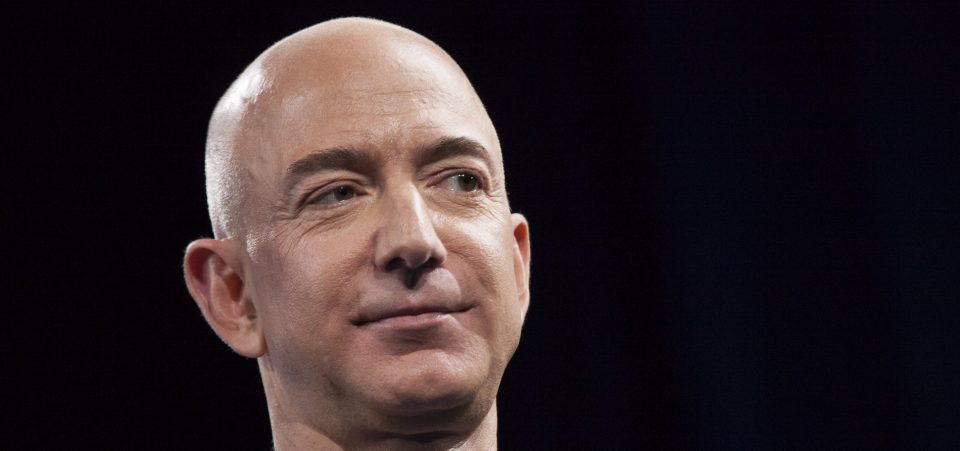Amazon Eyeing Another Large Brick-and-Mortar Retailer?
Gene Munster of Loup Ventures is predicting that Amazon.com, Inc. (NASDAQ: AMZN) will purchase Target Corporation (NYSE: TGT). This prediction resulted in TGT shares trading higher on the day the news broke. This signals that investors are in agreement with Munster about his bold prediction. (Source: “Amazon will buy Target in 2018, influential tech analyst Gene Munster predicts,” CNBC, January 2, 2018.)
This article will go into the nitty-gritty of how Munster came to such a conclusion. In addition, we look at why this move is an actual possibility. Lastly, we go over my personal opinions of whether or not Amazon will follow through with such a purchase of Target.
Why Is Amazon Seeking Such a Purchase?
Munster mentions that the takeover of Target would occur for two reasons: scale and market share.
Amazon operates in a very tough sector of the retail market. Scale is quite important for the business because it needs to have great operations in order to be successful and as convenient as possible for the consumer. The Target purchase would offer another vehicle of getting consumers to spend more money with the e-commerce giant. Also, Target’s store locations share demographic areas with Amazon, which would mean that the business could be integrated with no major problems.
The market share side of things comes back to obtaining a large percentage of the entire market. Over time, the expectation is that there are further gains in the overall market share held by AMZN stock. In order to achieve this, Amazon would need to adjust its business operations to satisfy the end consumer.
This simply means that Amazon would give consumers the choice of purchasing goods through its online portal or a physical store; there are just north of 1,800 Target locations in the U.S. The market share gain would be very manageable for Amazon because Target’s overall store count is not too large to handle. (Source: “Corporate Fact Sheet,” Target Corporation, last accessed January 3, 2018.)
Why Doesn’t Amazon Keep Its Status Quo Position and Grow Organically?
As mentioned earlier, the most important aspect of surviving in the retail environment is market share and scale. The No. 1 competitor to Amazon is Wal-Mart Stores Inc. (NYSE: WMT).
WMT stock’s business was built backwards compared to Amazon. WMT first began as a physical brick-and-mortar retailer and in recent years, has been gaining market share in the e-commerce segment. The e-commerce gains have come from investing in the infrastructure and through acquisitions.
Even though the majority of WMT’s revenue is from its physical stores, the business is gaining market share and continues to grow. For example, over the past five years, it has been increasing its gross income year after year with no down year. This simply means that brick-and-mortar retail is not dead. (Source: “Wal-Mart Stores Inc.,” MarketWatch, last accessed January 3, 2018.)
WMT is a great example of a company letting its customers choose how to purchase goods and services. This is why WMT is continuing to do well on all business-related aspects. The true evidence of business success is shown by its 44% stock market return (including the dividend payments) in 2017. Rather than Amazon playing catch-up with WMT, acquiring Target would make both companies compete head to head.
Another reason why Munster believes that Amazon will purchase Target outright is because of its past actions of moving into the brick-and-mortar retail space. In 2017, Amazon purchased Whole Foods Market for $13.7 billion, which was completed in an all-cash deal. This move gave Amazon the exposure of generating a profit from brick-and-mortar locations and from the grocery sector, which is known as a consumer staple. (Source: “How The Recent Amazon-Whole Foods Deal Can Reshape The Retail Food Industry,” Seeking Alpha, September 5, 2017.)
The purchase of Target would only expand Amazon’s market footprint even further in the consumer staples sector. Also, it will give Amazon more power over its wholesalers, which means it could lower its prices to entice consumers to shop with an Amazon-owned entity.
Amazon is always looking for another move to make, in order to gain more market share and offer value for the end consumer. This is why Munster came up with the prediction of Amazon taking over Target. This would be a quicker solution of building out a network of brick-and-mortar store locations. In addition, it reduces the number of companies operating in the sector, which is great for Amazon.
My Personal Opinion of Amazon Acquiring Target
In the past, when Amazon purchased Whole Foods, it was done when Whole Foods came off its stock market highs and still had a solid business network. But it was struggling at the time because Whole Foods is a premium grocery brand and consumers were not willing to spend as much money after the 2009 economic recession. Consumers were more conscious of their purchases and looking more at their bottom line.
Amazon looked at Whole Foods as a great opportunity to expand its market share and integrate its business model as a combined entity. The moment the news broke, Amazon said it would slash prices of everyday goods, which it followed through with. This move resulted in investors trading down other grocery retailers such as Costco Wholesale Corporation (NASDAQ: COST) and Kroger Co. (NYSE: KR). This was because of the great success that Amazon has had of operating its business and gaining market share in the retail sector.
Target seems to possess the same qualities that Whole Foods once had. TGT is down 10% in 2017 and is closing down stores. It is focusing more on its e-commerce business and trying to reduce its brick-and-mortar locations. Also, TGT earned five percent fewer revenue dollars in 2017 compared to 2016. (Source: “Target Corp.,” MarketWatch, last accessed January 3, 2017.)
Therefore, if a deal were to occur, there is a chance that an all-cash deal is completed. This would be done to reward TGT shareholders, who could then decide what to do with the funds. Another possibility is that it is a part cash and stock deal. This would mean that TGT shareholders would receive a part of AMZN stock for each TGT stock held and some cash.
This would be a greater possibility because the TGT market cap is north of $36.5 billion, which is three times the size of Whole Foods. Of course, if an offer was put on the table, there would be a premium paid to reward shareholders and get them to agree to the deal.
In respect to the prediction Munster made, it has a high probability of occurring in 2018 when factoring everything.






